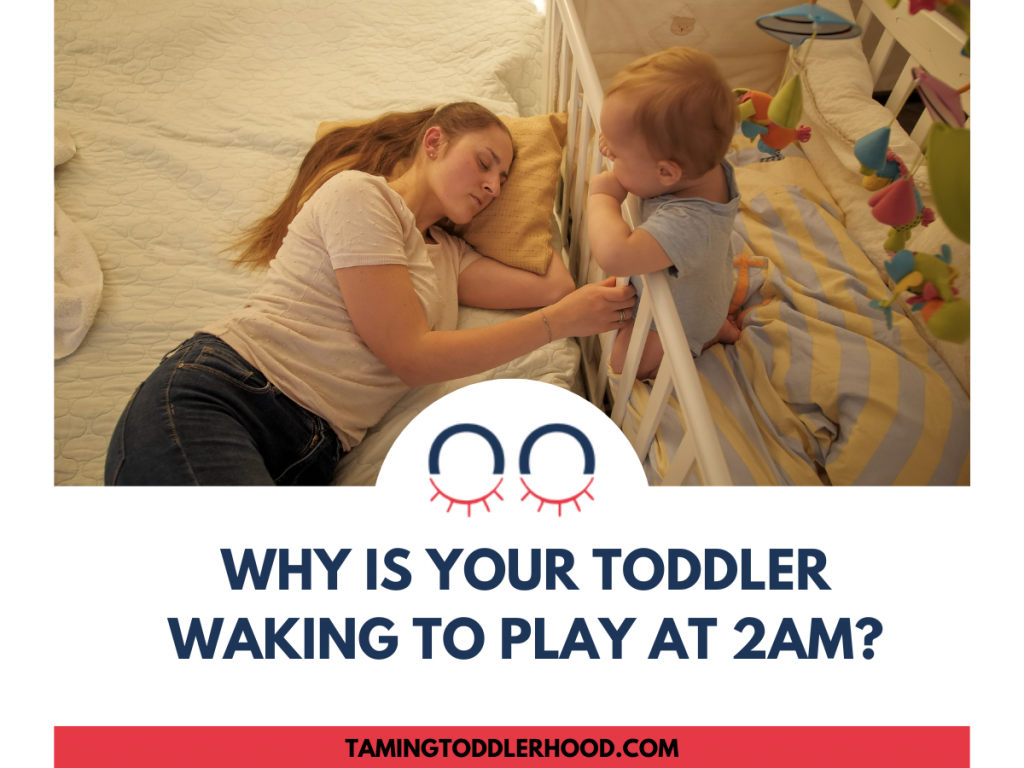
You finally get your toddler to sleep. You exhale, flop onto the sofa, and grab a moment of peace (or laundry, let’s be honest). A few hours later, you’re woken by the sound of little feet… and giggles.
It’s 2am. The light is on. Your toddler has built a “pirate cave” out of their duvet and is cheerfully singing Row, Row, Row Your Boat.
I remember standing in the hallway at 2:12am, bleary-eyed, wondering: How is she this awake… and why is she so happy about it?
Welcome to the world of split nights.
A split night is when your toddler wakes up in the middle of the night and stays awake for an hour or more, often calm, alert, and ready for play.
It’s not a tantrum or nightmare. They’re not distressed. They’re just… up.
And if it’s happening in your house, you’re not alone.
The short answer? Their brain and body aren’t quite in sync regarding sleep.
Split nights usually happen because your toddler isn’t tired enough to stay asleep all night, or they’re overtired and their sleep is fractured.
Here’s what might be causing it:
I worked with a lovely family recently, whose 22-month-old was taking a long afternoon nap and waking up every night at 2am. We trialled trimming the nap to 90 minutes and bringing it forward by 45 minutes. Within days, their nights improved.
If your toddler is having a big nap too late in the day, it can release just enough sleep pressure to make night-time tricky.
This one is often overlooked. You’d think that an exhausted toddler would sleep soundly, but overtiredness creates a spike in cortisol (the stress hormone), which can lead to lighter, more fractured sleep.
I remember one week when my daughter had dropped her nap cold turkey, and I hadn’t adjusted bedtime. Cue multiple 2am wake-ups where she was chatting to her teddies for an hour. We brought bedtime earlier, and things settled.
Developmental leaps, language explosions, even starting nursery, any big milestone can stir things up. Their little brains are working overtime, and night-time can become processing time.
For toddlers over 18 months, aim for 1–1.5 hours of nap time.
Try to make sure bedtime is late enough to protect night-time sleep drive.
If your toddler is resisting naps or taking a long time to fall asleep at bedtime, it might be time to trim or drop the nap.
Personal tip: When we dropped my daughter’s nap fully, we had a 2-week rough patch, but after that, her nights became so much smoother.
If they wake, keep lights low and don’t make it a party. Offer connection and reassurance, but avoid engaging in full conversation (tempting as it may be when they’re being annoyingly chatty at 3 am).
Sometimes just a small bedtime tweak, (15 to 30 minutes earlier or later) can make a big difference. It’s about finding the sweet spot for your child’s sleep pressure.
Has anything changed recently? Teething, moving house, a new sibling, starting nursery? All of these can stir up nighttime sleep.
Split nights are frustrating, especially when they seem to come out of nowhere. But they’re not a reflection of you or your parenting.
They’re just your toddler’s way of saying: something needs adjusting here.
If you’ve tried tweaks and are still stuck in a cycle of night-time parties, I’d love to help. Whether it’s through my Taming Toddler Sleep programme or a 1:1 troubleshooting session, we’ll work together to get your toddler sleeping peacefully and reclaim your evenings (and nights!).
